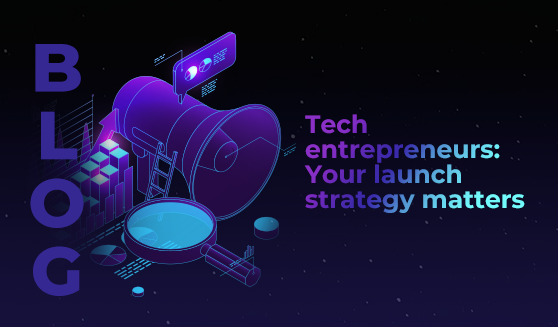
Why sustainability is the heart of the smart city revolution
The smart cities of the future will use tech to lower emissions, cut urban temperatures, and improve quality of life in highly populated areas.


Tech developers are, in our experience, some of the very best people. They’re focused, they’re visionaries, and they’re committed to bringing ideas to life. Not all product developers are entrepreneurs, but many of them are – and when you combine the drive to build a brilliant product with the drive to build a successful business, you’ve got a lot of work to do.
And in order to do that work justice, you need a launch strategy. Ideally, all tech startups would have a highly competent marketing team involved right from the start, to launch the product or service to a ready-and-waiting, primed-ahead-of-time audience. But the reality is that startups often have tight budgets, and marketing doesn’t always get the investment it deserves.
A survey by Campaign Monitor found that out of 1000 startups, only 20.8% had at least one person dedicated to marketing. And according to CBInsights, the top reason why startups fail is because they misread market demand – 42% of startups cite a lack of demand for their product as their reason for failure.
If you’ve ever said “we don’t have the budget for marketing yet, we’ll release the thing and think about marketing later,” we urge you to think again.
Marketing isn’t an afterthought. It’s an essential element of the groundwork your technology needs in order to be successful.
A solid launch strategy does a number of things. But absolutely central to a launch strategy is market research. If you put the work in to create an effective launch strategy, you’ll know before you launch whether or not there’s demand for your product – because you can’t build a good strategy without talking to the people you think will need or want your tech.
There’s no one right way of doing it, but this is a simple framework for building out your launch strategy:
One thing is woven into every stage: research. If you develop a launch strategy like this, then you should go to market feeling really confident that the product is ready for the audience, and the audience is ready for the product.
When we asked LEAP 2023 speaker Elnaz Sarraf (Founder at CEO at ROYBI Robot) about the biggest challenges she faced in bringing her AI-powered EdTech robot to market, she said:
“When I started my business, I didn't know a lot about social media advertising. I had a great experience with retail and distribution sales but not much with e-commerce sales and advertisement. So it took me several tries with agencies where I did not know the right questions to ask.”
“I ended up hiring a couple of agencies that could not help us grow and wasted a few months of our time. Eventually, I decided to take this opportunity and learn as much as I can. Since then, I was able to increase our sales month over month and now I am a lot more confident when it comes to online marketing.”
The takeaway? Marketing matters. Invest time and budget in it if you’re aiming for a successful launch.
Listen, we think we’d be doing you a disservice if we didn’t mention that coming to LEAP could be a powerful part of your launch strategy.
At LEAP 2023, representatives from Saudi Arabia’s government announced over USD $9 billion in tech investments; and an additional $4.5 billion was invested in global and local assets across various sectors at the event.
Your tech product or digital service can reach an international audience at LEAP – with the opportunity to showcase the best of your work in front of tech enthusiasts, focused investors, and global media. We’d love to be part of your launch. See you in Riyadh in 2024.

The smart cities of the future will use tech to lower emissions, cut urban temperatures, and improve quality of life in highly populated areas.

Discover the cities that rank highly for smart city preparedness, and learn why locally relevant innovation is more important than cutting-edge tech.

If you’ve ever thought about becoming a tech investor, read this – learn why investors are the quiet force shaping the future of the industry.

The smart cities of the future will use tech to lower emissions, cut urban temperatures, and improve quality of life in highly populated areas.

Discover the cities that rank highly for smart city preparedness, and learn why locally relevant innovation is more important than cutting-edge tech.

If you’ve ever thought about becoming a tech investor, read this – learn why investors are the quiet force shaping the future of the industry.